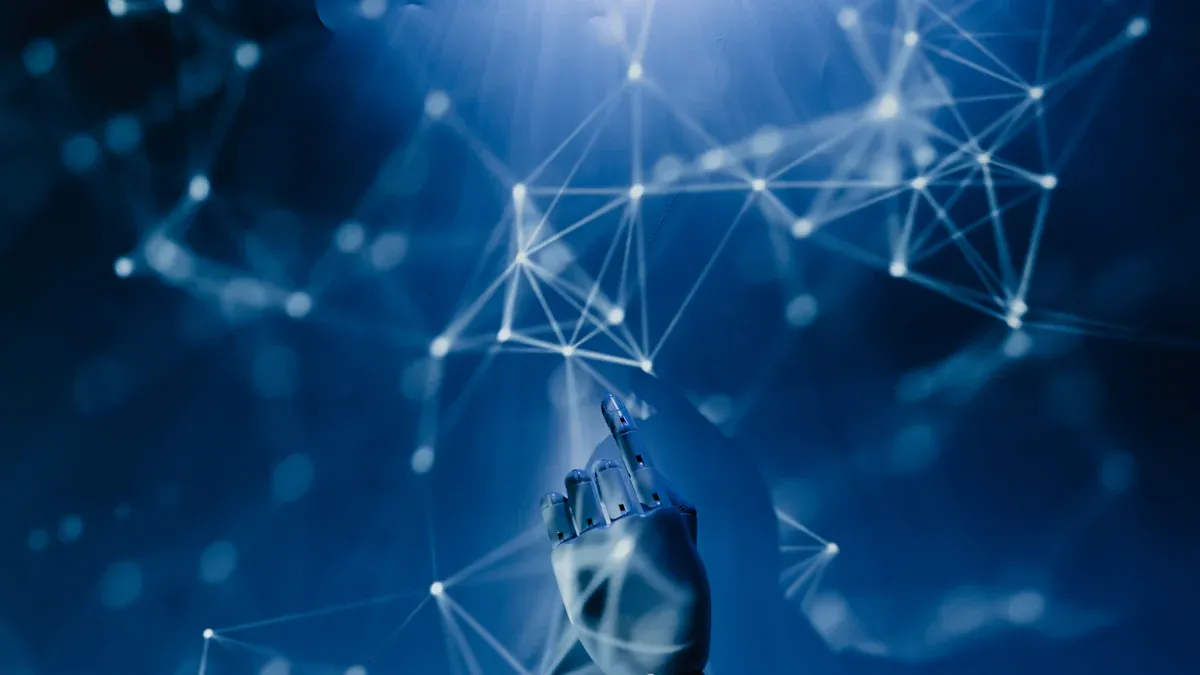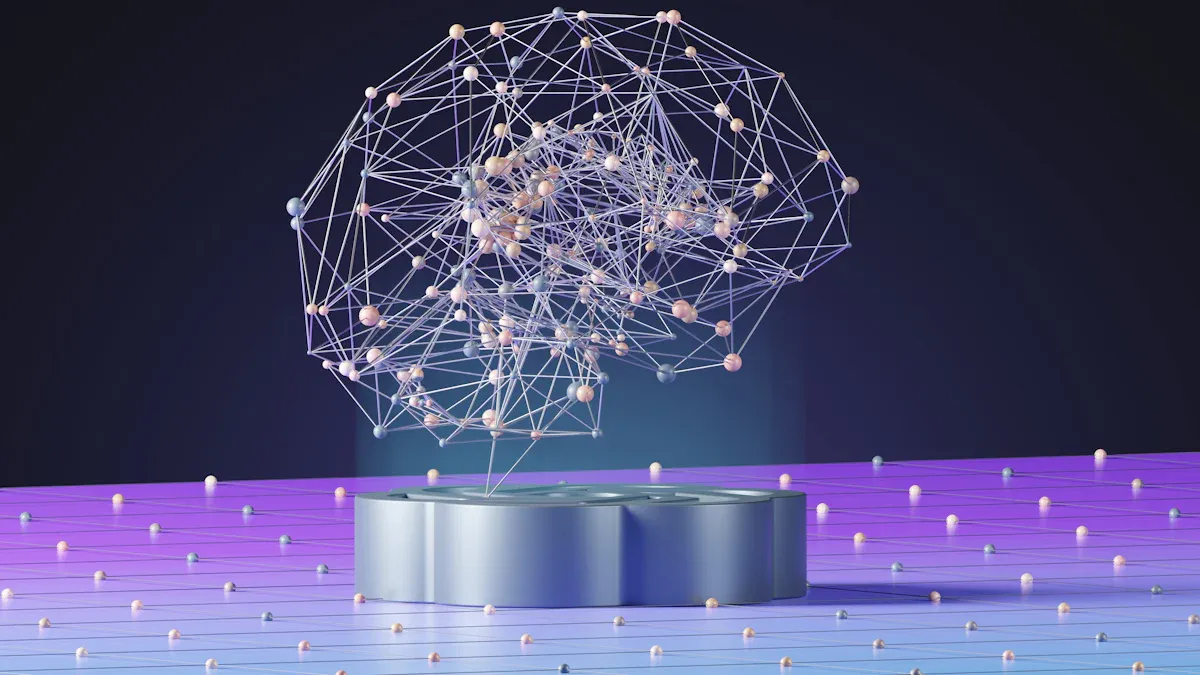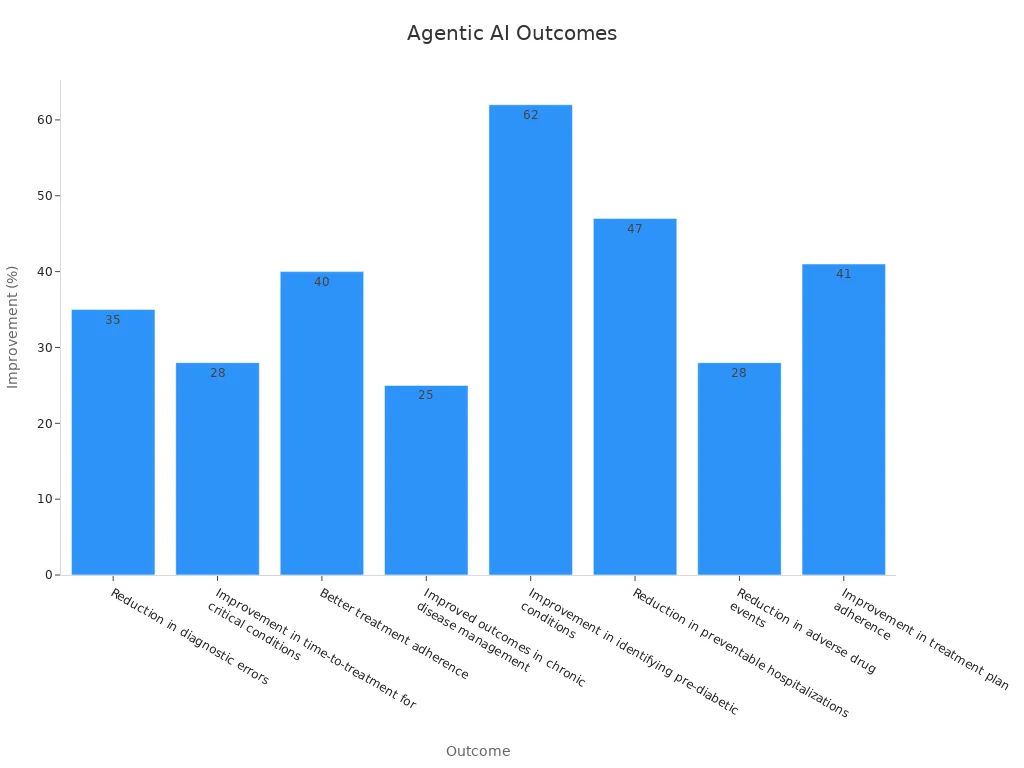AI Agents or Agentic AI Which One Fits Your Needs

When choosing between AI agents and agentic AI, knowing their differences helps. AI agents handle specific tasks like scheduling or customer support. They work alone within a set area. Agentic AI is a group of agents working together. It solves harder problems like robot teamwork or medical choices.
For simple tasks like sorting emails or giving suggestions, AI agents are better. Agentic AI is good for flexible and multi-step tasks, like helping with research. Today, 51% of companies use AI agents, and 29% are trying agentic systems. Both types are important for the future of automation.
Understanding AI Agents

What Are AI Agents?
AI agents are smart systems that do specific jobs on their own. They use tools like machine learning and natural language processing to talk to users, study data, and make choices. These agents work within set limits and focus on finishing tasks well. For example, an AI agent might help plan meetings, sort emails, or answer customer questions.
To see how AI agents perform, look at these measures:
Metric Type | Description |
|---|---|
System Metrics | Check how well systems run and use resources daily |
Task Completion | Show how well agents finish their assigned jobs |
Quality Control | Make sure results meet required standards |
Tool Interaction | Test how agents use tools and connect with APIs |
These measures help ensure AI agents work reliably and give steady results.
Key Features of AI Agents
AI agents have special features that make them good at automating tasks. Some key ones include:
Risk Summarizer Agent (RAG): Watches risk levels and sends alerts for big news or changes.
Learning Flywheel: Gets better over time using feedback and tracking performance.
Model Refinement: Adjusts models with feedback to improve real-world results.
Data Enrichment: Adds useful insights to databases for better future analysis.
These features help AI agents adapt and stay useful in changing situations.
Common Applications of AI Agents
AI agents are used in many industries to make work easier and faster. Here are some examples:
Customer Support: They answer questions, automate replies, and solve problems quickly.
Email and Calendar Management: They organize emails, plan tasks, and set up meetings.
Document and Report Generation: They create documents and reports, saving time and reducing mistakes.
Marketing and Sales: They improve campaigns, predict customer actions, and adjust prices.
Supply Chain Management: They match inventory to demand and predict future needs.
For example, Talent Inc. saved 78.57% of work time using AI agents. Bella Santé boosted sales by $66,000 with automated customer support. These examples show how AI agents can change how businesses work.
Exploring Agentic AI
What Is Agentic AI?
Agentic AI is a smarter kind of artificial intelligence. Unlike one AI agent doing one job, agentic AI uses many agents working together. These agents team up, adjust, and make choices on their own. For example, in healthcare, agentic AI links tools, patient files, and treatments to give accurate advice.
This AI is great at making quick decisions. It studies data instantly, organizes tasks, and handles tricky processes. More businesses now use agentic AI as a "service-as-a-software" tool. This change cuts down on manual work and boosts productivity.
Definition/Characteristic | Description |
|---|---|
AI agents study data, decide, and act quickly on their own. | |
Intelligent Orchestration | These agents connect systems and manage tasks with little human help. |
Automating Complexity | AI agents handle data tasks like cleaning and organizing, saving time. |
How Agentic AI Differs from AI Agents
Agentic AI is different from regular AI agents in many ways. While AI agents do one task, agentic AI handles many tasks by itself. It adjusts to changes and remembers past actions. For example, agentic AI can plan and solve problems without needing constant help.
Feature | Agentic AI | AI Agents |
|---|---|---|
Works alone, making its own decisions | Needs human help to act | |
Adaptability | Changes based on real-world updates | Has limited ability to adapt |
Task Execution | Completes tasks for bigger goals | Focuses on creating specific content |
Agentic AI also uses smart methods like reinforcement learning and causal reasoning. These help it improve plans and get better results over time.
Key Features of Agentic AI
Agentic AI has advanced abilities that make it useful for tough jobs:
Autonomous decision-making: It decides on its own, speeding up work.
Proactive learning: It learns from experiences and adjusts to new things.
Goal-oriented approach: It focuses on big goals to use resources wisely.
Self-awareness: It knows its limits and works to get better.
Adaptability: It spots patterns, learns new things, and changes as needed.
These abilities let agentic AI handle tasks needing flexibility and planning. For example, it can manage research teams or control robots in warehouses.
Comparing AI Agents and Agentic AI
Autonomy and Decision-Making
AI agents and agentic AI differ a lot in autonomy. AI agents work within set rules and need human help. They follow instructions and can't act outside their limits. For example, an AI agent can organize meetings or sort emails. But you must set its rules and check its work.
Agentic AI is more independent. It makes its own decisions and adjusts to changes without much help. Imagine a group of agents running a warehouse. They plan tasks, improve workflows, and fix problems without waiting for instructions.
Aspect | AI Agents | Agentic AI |
|---|---|---|
Works within set rules | Acts with high independence | |
Decision Making | Follows given instructions | Decides on its own |
Human Oversight | Needs regular monitoring | Works with little supervision |
This table shows how agentic AI is better at working alone. If your tasks are simple and repetitive, AI agents are enough. For changing environments, agentic AI is the smarter choice.
Complexity and Scalability
AI agents are great for simple, clear tasks. They are built for controlled settings and do one job well. For example, an AI agent can answer customer questions or sort tickets. But they struggle with teamwork or unexpected problems.
Agentic AI handles harder tasks. It uses many agents working together to solve big problems. These systems adjust to changes, making them useful for industries like trading or shipping. In trading, agentic AI studies market trends and changes plans quickly. AI agents, however, stick to fixed rules.
Aspect | AI Agents | Agentic AI |
|---|---|---|
Task Complexity | Simple, clear tasks | |
Scalability | Works alone on tasks | Uses teamwork across agents |
Performance Metrics | Measures one task at a time | Checks how all agents work together |
Development Efficiency | Risk of design mistakes | Clear design avoids errors |
Agentic AI’s teamwork and flexibility make it great for complex jobs. If your business is steady, AI agents save money. For growing or changing needs, agentic AI is better.
Adaptability and Proactiveness
Agentic AI is better at adapting than AI agents. AI agents focus on one job at a time. They fix errors alone and need help for next steps. For example, an AI agent can make a report but won’t suggest how to improve it.
Agentic AI plans ahead and learns from experience. It combines skills to reach bigger goals. For example, in research, agentic AI manages different stages of gathering knowledge. It ensures tasks are done well and on time.
Metric | AI Agents | Agentic AI |
|---|---|---|
Task Completion Rates | Does one job at a time | |
Error Management | Fixes errors one by one | Handles errors across systems |
Autonomy | Needs human help | Plans next steps alone |
Cognitive Architecture | No planning ability | Plans for big goals |
Agentic AI’s ability to adapt makes it great for flexible tasks. If your work is repetitive, AI agents are dependable. For tasks needing planning and learning, agentic AI is the best option.
Real-World Applications

When to Use AI Agents
AI agents are great for simple, repeated tasks. They work best when jobs are clear and need little decision-making. These agents can handle customer questions, sort emails, or schedule meetings without help. Their focus on one task ensures steady and accurate results.
Key factors like accuracy, speed, and reliability show when AI agents work best. For example:
Performance Indicator | Description |
|---|---|
Accuracy | Gives correct answers or makes right decisions. |
Speed | Works fast to process and respond. |
Reliability | Keeps working well over time. |
Companies like Salesforce and Zendesk show how useful AI agents are. Salesforce's AI assistant boosted lead conversions by 30%. Zendesk's chatbot raised customer satisfaction by 15%.
When to Use Agentic AI
Agentic AI is better for hard, changing tasks needing teamwork and flexibility. It works well when many agents must cooperate to reach a big goal. For example, in healthcare, agentic AI links patient records, treatments, and tools to improve care.
Agentic AI helps with things like managing chronic illnesses and making better diagnoses. A study showed it cut diagnostic mistakes by 35% and hospital stays by 47%. It also improved treatment follow-through by 40%, making it very helpful in medicine and research.

Industry-Specific Examples
AI agents and agentic AI have changed many industries. Here are some examples:
Industry | Applications of AI Agents and Agentic AI | Measurable Insights |
|---|---|---|
Claims Processing | Speeds up claims, finds fraud, and improves customer service | Claims done in minutes, fewer mistakes, faster updates |
Retail and E-commerce | Suggests products, adjusts prices, and recovers abandoned carts | More sales, better pricing, smarter inventory management |
Healthcare Administration | Schedules appointments, supports compliance, and manages patient intake | Less admin work, more focus on patient care |
Customer Support Automation | Solves issues, improves responses, and escalates problems smartly | Faster replies, consistent service across platforms |
Human Resources Assistance | Screens candidates, schedules interviews, and helps with onboarding | Faster hiring, better experience for job seekers |
Supply Chain Management | Predicts demand, coordinates logistics, and monitors supplier risks | Lower risks, quicker supply chain responses |
Academic Research Assistance | Reviews literature, finds research gaps, and analyzes data | Saves time on reviews and data work |
These examples show how AI agents and agentic AI solve problems and improve results in different fields.
Choosing the Right AI Solution
Factors to Consider
Picking the right AI solution means thinking about your goals and needs. To decide wisely, focus on these important points:
Match Metrics to Goals: Pick measures that fit your business aims. For example, if better customer service is your goal, track response times or accuracy.
Test in Real Situations: Try the AI with different test sets. A fixed test set checks consistency, while a time-based one shows how it handles new data. Special edge tests find weak spots in tough cases.
System Compatibility: Make sure the AI works with your current tools. Check for API support, data formats, and easy setup.
Budget and Resources: Balance spending and quality. Know your goals and use resources smartly to avoid wasting money.
Growth and Flexibility: Think about whether the AI can grow with your business. AI agents are good for simple tasks, but agentic AI adjusts to changing needs.
By focusing on these points, you can pick an AI solution that fits your goals and gives clear results.
Matching AI to Your Needs
Choosing between AI agents and agentic AI depends on your tasks and how much independence you need. AI agents are great for simple, repeated jobs. For example, they can answer customer questions or plan meetings quickly. These are perfect for businesses wanting affordable automation for clear tasks.
Agentic AI is better for complex and changing tasks. It uses many agents working together to reach big goals. For instance, in healthcare, it links patient files, treatments, and tools to improve care. It learns from past work and adjusts to changes, making it ideal for industries needing teamwork and flexibility.
Insight | What It Means |
|---|---|
Helps tailor strategies to fit specific business needs | |
Setting adequate AI readiness target levels | Ensures clear steps for successful AI use |
AI tools also make customer experiences more personal. They learn what customers like, helping you create better products. Dashboards from these tools show performance clearly, helping you make smarter choices.
Future Trends in AI Agents and Agentic AI
The future of AI agents and agentic AI is full of exciting changes. As technology grows, these trends will shape the field:
Better Teamwork Among Agents: Agentic AI will improve how agents work together. This will help industries like shipping, where teamwork can improve supply chains.
Smarter Learning: Both types of AI will use advanced learning methods, like reinforcement learning, to make better decisions and adapt faster.
Merging with New Tech: AI will connect with tools like IoT and blockchain for smarter systems. For example, agentic AI could use IoT to track live data in farming or factories.
Focus on Fair AI: Developers will work on making AI fair and clear. This ensures both types of AI act responsibly and match society's values.
New Areas of Use: Agentic AI will expand into fields like self-driving cars and smart cities, where teamwork is key.
By keeping up with these trends, you can prepare your business to use the newest AI advancements.
Deciding between AI agents and agentic AI depends on your needs. AI agents are great for simple tasks like sorting emails or scheduling. Agentic AI is better for harder jobs that need teamwork among agents. The table below shows their main differences:
Feature | AI Agents | Agentic AI |
|---|---|---|
Task Handling | Does one job at a time | Handles big tasks with teamwork |
Adaptability | Struggles with changes | Adjusts to new challenges easily |
Coordination | Works alone | Agents share info and work together |
Learning | Learns basic skills | Remembers past work to improve |
Example | Smart thermostat | Smart home system with many agents |
To choose the best option, think about your goals and key measures. For example, if you want to lower labor costs or improve schedules, match your choice to these measures:
KPI | Description |
|---|---|
Labor Cost Percentage | Compares labor costs to revenue to find ways to save money. |
Schedule Adherence Rate | Tracks how often workers follow their planned hours. |
Overtime Utilization | Measures overtime hours compared to regular hours worked. |
For easy AI setup, Momen offers a no-code tool to create workflows. It helps businesses use AI agents and agentic AI without needing coding skills.
FAQ
What is the main difference between AI agents and agentic AI?
AI agents do one job at a time, like planning schedules or answering questions. Agentic AI uses many agents working together for harder tasks, like managing research or controlling robots. The big difference is how they work alone or as a team.
Can AI agents and agentic AI work together?
Yes, they can work well together. AI agents handle small tasks quickly, while agentic AI focuses on bigger goals that need teamwork. For example, AI agents can collect data, and agentic AI can study it to make smart choices.
Which industries benefit most from agentic AI?
Industries needing teamwork and flexibility gain the most. For example, in healthcare, agentic AI helps with medical decisions. In logistics, it improves supply chains. Its ability to adapt makes it great for changing environments.
How do I decide which AI solution fits my needs?
Think about your tasks and goals. Use AI agents for simple, repeated jobs. Pick agentic AI for tasks needing teamwork and flexibility. Check your budget, system needs, and how much you want to grow before choosing.
Is it possible to build AI solutions without coding?
Yes, tools like Momen let you create AI workflows without coding. These no-code tools make it easy for any business to use AI.
See Also
A Comprehensive Introduction To AI Agents For Beginners
The Key Differences Between AI Agent Apps And Traditional Ones
The Impact Of AI Agents On Startups And Large Enterprises
